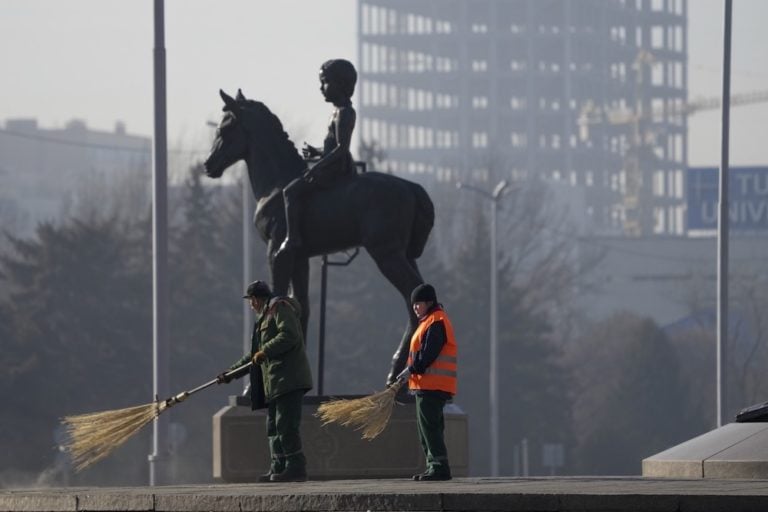Three court marshals in Almaty raided the offices of the Assandi Times and ordered the journalists to stop working, accusing the paper of being linked to the independent newspaper Respublika, which is banned in Kazakhstan.
An independent paper, the Assandi Times, was suspended indefinitely on Tuesday, according to news reports. The Committee to Protect Journalists condemns recent measures taken by Kazakh authorities to shut down independent news outlets in the country.
Three court marshals in Almaty raided the offices of the Assandi Times and ordered the journalists to stop working, accusing the paper of being linked to the independent newspaper Respublika, which is banned in Kazakhstan. The officials attempted to force the journalists out of the Assandi Times newsroom and seal the premises, but failed, so they confiscated the paper’s archives, regional and international press reported.
The officials showed the Assandi Times staff a document claiming that the immediate and indefinite suspension of the paper was based on a decision issued Monday by the Medeu District Court. However, the decision, which is available online and was reviewed by CPJ, does not specify shutdown of the paper. The decision states that a prosecutor filed a civil lawsuit against the paper, requesting the court to declare the Assandi Times a sister publication to Respublika. The court accepted the lawsuit and ordered all parties to be informed about an upcoming court hearing on April 7.
The journalists at Assandi Times told CPJ they were not previously informed of the court decision or any lawsuits against their outlet. The paper has stopped publishing, the journalists said.
“The Kazakh government is shameless in its public displays of intolerance for critical reporting,” said Muzaffar Suleymanov, CPJ’s Europe and Central Asia research associate. “We urge authorities to drop the lawsuit against Assandi Times and to stop harassing independent journalists.”
In a related case, Natalya Sadykova, a regional correspondent for the Assandi Times, fled Kazakhstan on March 9 and went to Ukraine after police sources told her she could be arrested after a former parliament member accused her of libeling him in an article published in Respublika. Sadykova denied writing the article, news reports said.
The Kazakh government has long targeted Respublika and its sister outlets. In late 2012, Kazakh authorities cracked down on Respublika and several other news outlets in retaliation for their coverage of violent police clampdowns against protesting oil workers in western Kazakhstan. Authorities raided newsrooms, interrogated journalists, and imprisoned one editor, according to reports. By year’s end, Kazakh courts declared dozens of news outlets, including Respublika and its 30 affiliate publications, guilty of extremism and banned them in the country.
Respublika journalists have been harassed even after the outlet was officially banned. In February 2013, Almaty prosecutors stormed the offices of the independent newspaper Ripablik—Respublika‘s successor, which started publishing in January 2013–and handed out official warnings that said the journalists were banned from working together or publishing a newspaper, the Almaty-based press freedom group Adil Soz reported.
At a press conference in Almaty today [3 April 2014], Sergei Duvanov, chief editor of Assandi Times, said he did not know whether authorities were concerned by the fact that several Respublika staffers had started working at his newspaper. “If these people are banned from practicing journalism, does that mean authorities won’t have any complaints if I hire others?” he asked.


